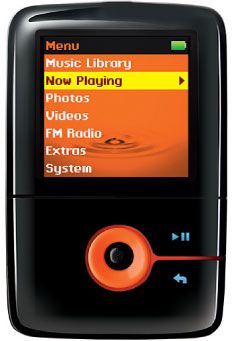by Evelyn Cash
A few weeks ago, Jerry Kolber wrote an article on this blog about the Branding of Buddhism.
His piece presented an intriguing argument for branding and
popularizing Buddhism in order to make the Buddha’s valuable teachings
available for everyone. Inspired by Jerry’s title, I’ve been thinking
about the ways Buddhist terms or ideas already show up in popular
brands sold everywhere and what, if anything, these brands mean to
those of us who call ourselves “Buddhists.”
From
my little knothole, it seems like the most branded Buddhist term out
there is Zen. Most mornings at work, I grab my mug and head to the
break room for hot water to steep my Tazo Zen tea (their website
is and example of what I’m talking about and features links such as “Be
Enlightened” and “Enlighten Us”). Before I finally broke down and
bought an iPod, my MP3 player of choice was the Creative Zen V. And for those of you who watch the Daily Show, you already know Jon Stewarts famous send off: “here it is, your moment of Zen.”
There are many many more examples of this sort of “Pop Buddhism” that
come to mind once you stop to think about it (I just remembered that
Pinesol commercial with the guy meditating
and floating off the ground). You can go to the store and pick up a
Mandala card coloring set (which I own by the way and actually enjoyed)
and grab a mini-Zen rock garden on your way out.
What message
are these marketers trying to send when they label their products with
Buddhist terms or when they design products modeled after aspects
Buddhist practice? You would never see Tazo Presbryterian tea or a
Creative Catholic MP3 player. Maybe it’s just the allure and “mystery”
of the East or maybe it’s just one more piece of evidence for Jerry to
add to his argument against Buddhism as a religion (if it’s a tea, it
can’t be a religion.. right?). The truth is, I don’t know why
marketers use Buddhist language to sell their products and as a
practicing Buddhist it doesn’t really bother or offend me anyway. I
do, however, wonder how people who know nothing about Buddhism view
these types of products. Before high school, I knew next to nothing
about Buddhism but I don’t really remember noticing or thinking much
about these types of things. Nowadays, when I see people perusing the
discount section in Barnes and Noble and picking up that Mandala card
set, I do wonder what they are thinking.
In most cases, I
don’t think these Pop Buddhist products are doing much harm. In
general, these products are neither postive nor negative reflections of
actual Buddhist practice. More often than not, they have nothing to do
with Buddhism or Zen at all (the MP3 player comes back to mind). If
anything, some of them may inspire the random curious individual to do
a
little research and find out more about meditation and Buddhism. On
the other hand – and mostly in relation to the prevelance of the word
“Zen” for everything from yarn to project management
– I do hope that this phenomena doesn’t give people the wrong idea of
what Zen is. I know from my own experience that when I tell someone
I’m a “Zen Buddhist” I do tend to get a quizzical look that either says,
“yeah right” or “so you basically do nothing?” I tend to think that
these products make Zen seem like a very esoteric, “empty mind” yet
very cool approach to life. For me, Zen has been a much deeper spiritual practice and philosophy than these products seem to give it credit for. Then again, maybe that’s exactly what Zen
is and the marketers have got it right and they’re selling it.



